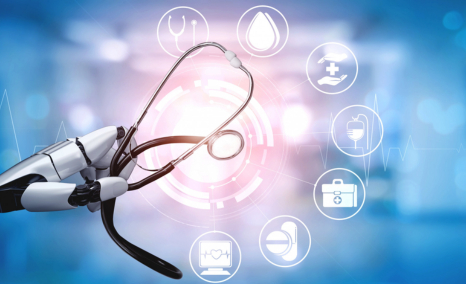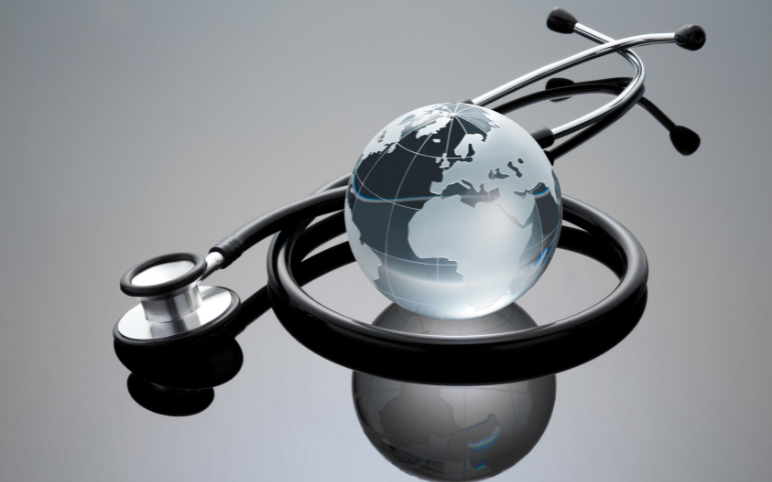Analyzing How Medical Coding is Playing a Conducive Role in Healthcare Service Delivery
Feb 01, 2023
Table of Contents
Over the past few decades, technological innovations have led to immense growth and development in the healthcare industry and has simplified the patient treatment journey to a significant extent. The growth in high-tech medical devices, equipment, innovative targeted therapies, and ingenious procedures and techniques has enhanced medical function and improved healthcare service quality. Similarly, medical coding is an invisible field in the healthcare industry that is quite less known among the public but plays a critical role in improving patient care. Medical coding is the first step in the medical billing and coding process. It is a highly complicated and ever-evolving field used to designate and classify medical services, diagnoses, and procedures.
Medical billing and coding is the process of compiling and disseminating vital information related to clinical procedures and services in a patient’s records. It allows an accurate way to describe patient care, which further helps healthcare organizations submit medical claims and receive reimbursement from insurance companies efficiently. Moreover, it is also becoming an increasingly important element in research and public health initiatives. Globally, several key companies are actively working in the medical coding market to deliver new software and products. The intense competition in the market anticipates better and improved outcomes for the patients and the healthcare service providers.
Downloads
Article in PDF
Recent Articles
- Pressure Relief Devices: Charting the Course of Market Evolution and Major Developments
- FDA Grants Approval to Caris Life Sciences for MI Cancer Seek; Johnson & Johnson MedTech Secu...
- Check-Cap’s Pivotal Trial for C-Scan; Curebase and Flow Neuroscience’s tDCS Device; Brainlab Acqu...
- Norlase’s ECHO™ Green Pattern Laser; HAPPE Spine’sINTEGRATE-C™ Interbody Fusion Sys...
- Neurovascular Thrombectomy Devices Market
Medical Coding: Overview and Key Applications
Earlier, most of the medical coding and billing was done manually, which led to a very high consumption of human resources and time. It is observed that as the number and amount of paperwork increases, the chances of the insurance company denying payment also increase dramatically. If the claims are not correctly processed, it can directly impact the revenue cycle. The development of hospital billing software solutions and medical coding has redefined the entire claim processing and payment collection task. Initially, medical coding was used to track key trends and developments in the healthcare field, such as mortality and morbidity rates. However, with technological developments, medical coding has become more and more complex. Now it is being specialized and deals with converting healthcare diagnoses, procedures, medical services, and equipment into universal and standardized medical alphanumeric codes. Medical coding applications have streamlined the overall process and reduced errors significantly in the healthcare industry. Medical coding applications are generally used by healthcare professionals such as doctors, healthcare administrators, and insurance companies. Compared to conventional methods, medical coding has ensured that the medical staff can focus on managing patient care and the accuracy of the data, thereby facilitating the billing process.
Medical Coding Market Segment Analysis
Medical coding plays a critical role in the healthcare system. By providing an accurate and detailed description of patient care and healthcare treatments, medical coding allows for efficient claims submission and reimbursement, as well as valuable insights into patient care and public health. Medical coding by the classification system is segmented as International Classification of Diseases (ICD), Healthcare Common Procedure Code System (HCPCS), and Current Procedural Terminology. In the classification system segment of the medical coding market, the International Classification of Disease (ICD) segment holds an immense market share owing to the increasing prevalence of diseases. Moreover, the ICD is easy to use and flexible. It enables the use of health information for various purposes, including improved patient outcomes, quality analysis, safety, integrated care, strategic planning, population health reporting, and health care service delivery. Also, ICD 11 codes are simple to use, and new ICD versions are expected to hit the market in the near future.
Medical Coding Market Dynamics and Key Trends
Medical coding market is anticipated to grow immensely in the coming years owing to the increasing prevalence of chronic disorders globally. The rising incidence of chronic disorders is leading to an increase in the number of hospitalization, thereby driving the demand for medical coding to track injectable drugs and supplies, medical bills, insurance claims, and others. Medical coding streamlines the billing solution and ensures a high degree of consistency in documentation across medical facilities in the healthcare industry. Moreover, medical coding companies allow administrators to evaluate and analyze the frequency and efficacy of treatment in their facility. Medical coding can be vital in large medical facilities such as tertiary care hospitals. However, some of the key factors, such as the continuously changing regulations in different regions, data security and privacy concerns, lack of sufficiently equipped information technology (IT) professionals in the healthcare industry, and others, may hamper the medical coding market growth.
Medical Coding Market – Regional Market Assessment
As per DelveInsight, among all the regions, North America is anticipated to dominate the global medical coding market in the coming years. Some of the key factors such as the increasing prevalence of various diseases in the region. The increasing number of chronic diseases and hospitalization stimulate the demand for medical coding as the coding services are used to track disease, drugs, medical bills, insurance claims, and other activities. Moreover, the growing demand for streamlining hospital billing procedures and the presence of key market players in the region are further anticipated to drive medical coding in the coming years.
Major Benefits of Medical Coding
The role of medical coding is growing in the healthcare industry at a rapid pace to process and track healthcare claims electronically. Healthcare providers and insurance companies rely extensively on medical coding to bill for services and procedures performed, which in turn facilitates the healthcare service providers to quickly and easily submit claims to insurers. The implementation sped up the payment process. Additionally, it can ensure accurate coding of diagnoses and treatments, which can reduce errors and improve the level of accuracy when it comes to billing and collecting payments. Moreover, over the years, medical coding has evolved significantly to reduce fraud and abuse. Medical coding provides an extra layer of security to the payment process. Overall, medical coding can help to streamline the billing process, improve accuracy, reduce errors, and reduce the potential for fraud or abuse. It’s a valuable tool for healthcare providers, insurers, and patients alike and is an important part of the healthcare system.
Key Challenges in the Medical Coding Market
Medical coding deals with the process of assigning codes to medical diagnoses and procedures to simplify the healthcare service delivery process. But there are several challenges associated with it. Medical coding is a highly specialized and evolving field, requiring a great deal of knowledge and expertise in medical terminology and coding guidelines. So, staying up-to-date with new and latest coding standards and a better understanding of how codes can be used is one of the key challenges. Similarly, in some cases, Medical coding can be very time-consuming, as it requires careful and accurate attention to the documentation of patients’ medical histories. Furthermore, the coders must demonstrate precision, pay attention to detail, and possess excellent communication and problem-solving skills to accomplish the desired task efficiently. A minute error can immensely impact the overall quality of a patient’s care. Despite advances in technology, there is always the possibility that mistakes could be made in the assigning of codes, resulting in incorrect payments and incorrect information being stored, which could cause further problems down the line. Overall, medical coding has a vital role in the healthcare system, but the potential drawbacks need to be taken into consideration to save costly human resources and time.
Recent Commercial Developmental Activities in Medical Coding Market
Over the past few years, several major regulatory and commercial development activities related to product approval and launches, acquisitions, agreements, and partnerships, have been registered in the medical coding Market. Similarly, favorable policy formulation has also led to a conducive growth environment for medical coding implementation and adoption. Some of the major commercial developmental activities registered in the medical coding market in recent years include:
- In October 2022, Nym, the leader in translating clinical language into actionable information, announced that its medical coding engine is now being offered to radiology departments across the United States.
- In January 2022, National Medical Billing Services, an industry-leading healthcare revenue cycle management company serving the ambulatory surgery center (ASC) market, acquired mdStrategies, a full-service medical coding company focused on ASCs.
- In July 2022, Greenway Health launched Greenway Medical Coding services, its newest healthcare solution for ambulatory practices. Greenway Medical Coding enables practices to capture cost efficiencies, improve practice earning potential, and collect insurance payments efficiently with the knowledge and precision of a personalized coding team.
- In September 2021, AGS Health, a leader in revenue cycle management solutions for major healthcare providers across the United States, acquired EZDI, a leader in modernizing computer-assisted coding (CAC) to support healthcare providers with revenue cycle management.
- In March 2021, athenahealth launched athenaOne Medical Coding Solution, an EHR coding solution that could mitigate clinician coding-related work and ultimately reduce clinician burnout.
Key Companies in the Medical Coding Market
Globally, some of the prominent players in the medical coding market include 3M, Nuance Communications, Inc., Oracle Corporation, Coding Network., Optum Inc., aidéo technologies, LLC, Dolbey, Aviacode Inc., MRA Health Information Services., Talix, PCS, Access Healthcare, Global Healthcare Resource, Episource, Omega Healthcare., Startek, GeBBS Healthcare Solutions, Outsource Strategies International., PAREXEL International Corporation, AltuMED, and others. Furthermore, due to the rise in demand and positive return, several new players are anticipated to enter the medical coding market in the coming years. As a result, frequent and more new product launches are expected.
Medical Coding Market Future Analysis and Perspective
Medical coding is a rapidly growing field in the healthcare industry due to the growing demand for better healthcare service delivery. As per DelveInsight, the global medical coding market was valued at USD 16.23 billion in 2021 and growing at a CAGR of 10.91% during the forecast period (2022-2027); it is anticipated to reach USD 30.17 billion by 2027. The demand for medical coding is expected to grow in the coming years owing to the surging cases of chronic disorders and hospitalization across the globe. The rising need for a universal language to reduce fraud and misinterpretations associated with insurance claims and the growing need to streamline hospital billing procedures will further stimulate the market. The increasing adoption rate of advanced healthcare solutions in routine hospital operations and clinics creates the necessity for medical coding in the market.
Additionally, the rapid digitalization and the growth in the adoption of new-age health technologies such as electronic health records, telemedicine, telehealth, electronic health records (EHR), and other patient management software are also anticipated to have a positive impact on the medical coding market. In the upcoming years, integrating emerging technologies like artificial intelligence, machine learning, natural language processing, and Robotic Process Automation (RPA) will provide a more automated, efficient, and secure patient data management, thereby streamlining the convenient coding and billing solution process.

Downloads
Article in PDF
Recent Articles
- TELA Bio Launched Hernia Mesh Fixation Devices; Stryker Acquisition of SERF SAS; FDA 510(k) Clear...
- Vivos Therapeutics Receives FDA 510(k) Clearance for Pediatric Sleep Apnea; Nevro Launches AI-Dri...
- QuantuMDx & Menarini’s Agreement; TruClear System Launched by Medtronic in India; FDA 510(k)...
- Navigating the Most Use Cases of Robotic Process Automation (RPA) in Healthcare
- Alcon’s 510(k) Clearance From the FDA; Globus Medical Received FDA Clearance; UK Pioneers F...



